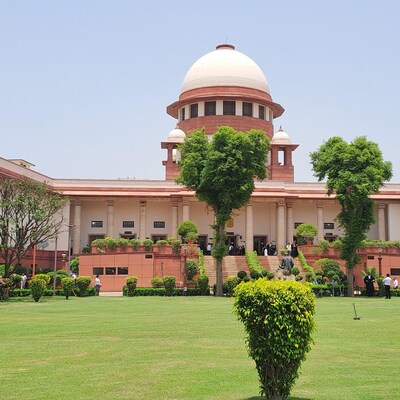In a development that may encourage increased investment in commercial real estate, the Supreme Court granted the industry relief on Thursday by permitting the application of input tax credits (ITC) on construction expenses for commercial buildings meant for leasing.
“If the construction of a building was essential for carrying out the activity of supplying services, such as renting or giving on lease or other transactions in respect of the building or a part thereof, which are covered by clauses (2) and (5) of Schedule II of the CGST Act, the building could be held to be a plant,” said Justices Abhay S Oka and Sanjay Karol.
This ruling is anticipated to ease the financial strain of rent on tenants occupying commercial spaces. Real estate companies stand to gain, as buildings can now be categorised as plant and machinery. Additionally, this advantage is not limited to commercial real estate; various industries will also be able to claim ITC on rentals for commercial properties. The ruling suggests that the ITC benefit will be available retroactively.
“This is an important decision that could have wide ramifications for industries, particularly hotels, infrastructure, and logistics, including warehousing. While the Supreme Court has upheld the constitutional validity of restrictions relating to input credit on construction-related procurements, it has been held that whether a building constitutes ‘plant or machinery’ needs to be examined on a case-by-case basis,” said Pratik Jain, Partner, PwC India.
“It means that where it falls under this category, credit would be allowed. It will be interesting to see if the government considers amending the GST laws after this decision,” added Jain.
Experts believe that although the constitutional challenge was dismissed, the acceptance of the taxpayer’s submission under Section 17(5)(d) is a positive outcome, potentially lowering the financial burden on developers and fostering greater investment in commercial real estate.
“The real estate industry should carefully evaluate the implications of this ruling on ITC eligibility for outward supplies related to rental income. Given the Supreme Court’s decision, it would be prudent for the GST Council to issue clarifications allowing real estate players to claim ITC on rental income,” said Saurabh Agarwal, Tax Partner, EY India.
Tax experts also pointed out that the question now arises whether this ruling would also apply to factory buildings, jetties, storage tanks, etc.
“The applicability will depend on the specifics of each case. In the Safari Retreats case, the petitioner retained the property and leased it out rather than using it for personal purposes. In contrast, factory buildings, storage tanks, etc. are typically used by the registered person for their own operations. Therefore, once the detailed ruling is available, it will be crucial to assess, on a case-by-case basis, whether ITC related to factory buildings, storage tanks, etc., will be allowed. If ITC is permitted, it will be important to understand the circumstances under which it can be claimed,” said Agarwal.
Tax experts also believe that GST laws generally do not allow the benefit of input credit/set-off of GST costs incurred on the input side for the construction of civil structures/immoveable property, with very few exceptions. This often results in additional GST costs for service providers whose primary input-side investment is in immoveable property, such as malls/commercial real estate players, port or airport service providers, and LNG terminal operators.
Background of the case
In the case of Safari Retreats, a mall owner approached the Orissa High Court, arguing that when a mall is being built for providing commercial rental services for the shop spaces therein, there should be no restriction on availing input credit/set-off for the GST cost incurred on the said construction. The Orissa High Court upheld this argument, and the GST authorities subsequently appealed to the Supreme Court. Several similar matters eventually reached the Supreme Court, leading to the formation of a large batch of matters on this legal point. Some of these newer matters also challenged the constitutional validity of such a restriction on input GST credit. Today, the Supreme Court has pronounced its judgment—while it has rejected the constitutional validity of the restriction, it upheld the conclusions of the Orissa High Court and, among other things, held that input credit will be allowed if the construction activity is for ‘plant’ or ‘machinery’.
“This is a landmark judgment by the Supreme Court. While determining whether a mall, hotel, jetty, breakwater, or warehouse qualifies as ‘plant or machinery’ will remain a factual question (potentially leading to a second round of litigation), the greatest positive is that the Court has categorically held that there is no blanket restriction against input credit/set-off of the GST cost incurred on the construction of civil structures/immoveable property, especially when the said structure itself is integral to providing the output services in question,” said Sudipta Bhattacharjee, Partner at Khaitan & Co.
First Published: Oct 03 2024 | 9:02 PM IST


